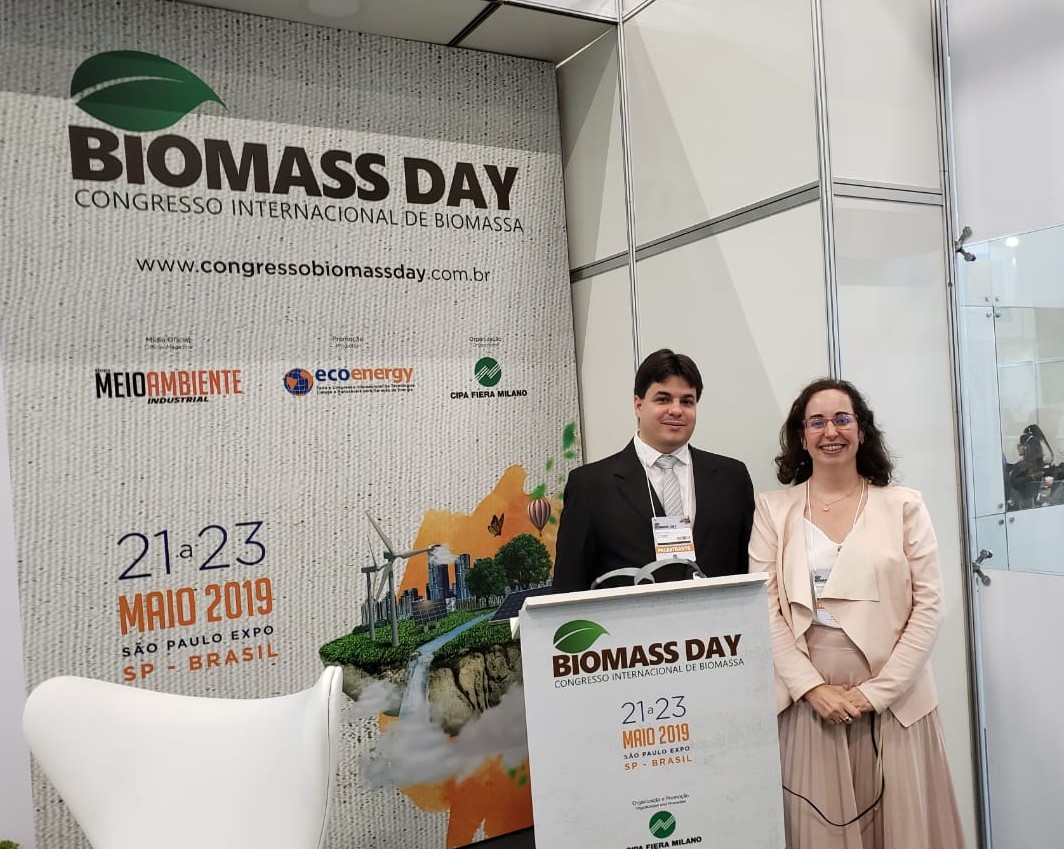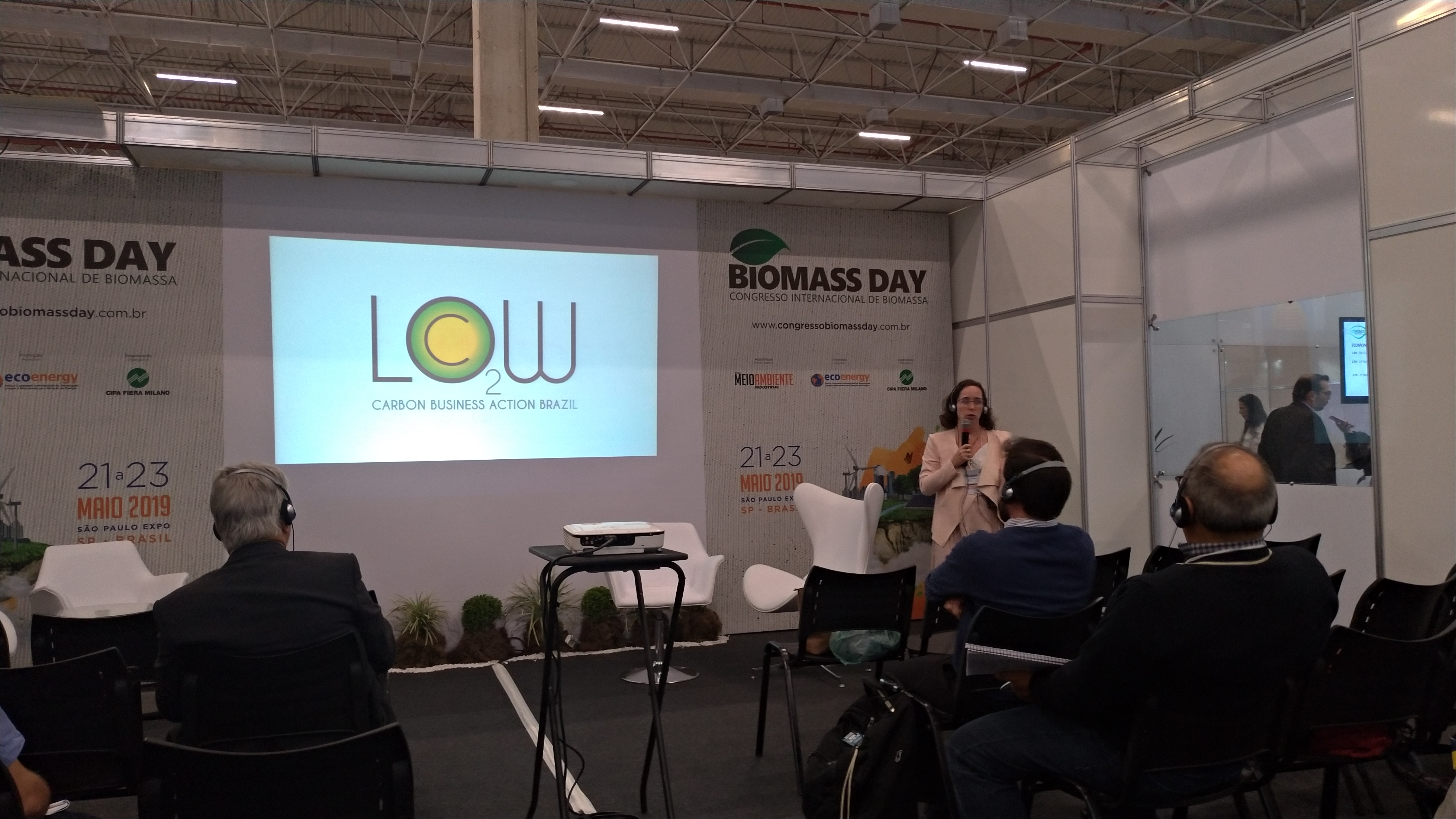
Mercedes Blázquez, leader of Low Carbon Brazil and engineer Bruno Luciano at Biomass Day
One of the attractions of Ecomondo Brasil, the International Biomass Fair gathered businessmen and big names of the market on May 21 to 23 to discuss the immense potential of biomass for generation of electricity, steam, fuel, second generation ethanol and other bioproducts.
The Low Carbon Brazil initiative by the European Union had the opportunity to expose two of the projects in progress in the sector of Waste Management, Biomass and Biogas. The solutions, with European technology, will be applied to the treatment of organic waste produced by a food distribution centre in Curitiba. Another project for a sugarcane mill in Goiás comes from German company ME LE Energietechnik which is studying the feasibility of developing the first concept of technological biodigestor for the treatment of sugarcane waste, in order to generate decentralized energy.
Mercedez Blázquez, leader of the program, took the opportunity to tell more about the initiative and the meticulous measurement of reduction of environmental impacts the projects are intended for. "The event, of a high technical level, showed the enormous potential of Biogas in Brazil, but with some challenges in terms of capital expenses and investments which are still very big in order to make them economically viable. Some experts have also indicated that there is a lack of international technology in order for the local project to be a future solution. There is a clear need to seek increasingly advanced technologies in Brazil, especially in the use of the so-called "environmental liabilities", in order to convert them into "energy assets" for the agri-food industry", she observes.
The event also featured other talks and debates and the participation of entrepreneurs, such as André Tchernobilsky, founder of ZEG Ambiental, who participates in Low Carbon Brazil with an excellent waste management project; and also had large institutions such as Abiogás - Brazilian Association of Biogas and Biomethane (Associação Brasileira de Biogás e Biometano) and CIBiogás - International Centre for Renewable Energies - Biogas (Centro Internacional de Energias Renováveis – Biogás), which is part of 7 projects supported by the program. The institutions discussed the legislation of distributed generation, as one of the factors responsible for the growth of biogas in Brazil, and other possible areas that could benefit from renewable energy, such as the use of gaseous waste from biogas for the soft drink industry in the country.
